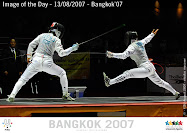Maturity
I find this poem interesting in its take on growing old. I like the simple use of language to describe the slow, painful degeneration of aging. I overall enjoyed the poem due to its short but sweet approach.
Friday, October 23, 2009
Poem #24: "To My Wife" by Philip Larkin
To My Wife
Though this poem has a strong sense of negativity, I still found it to be enjoyable and of merit. It is simple, but can adequately present Larkin's feelings. He does a good job presenting the sense of disappointment and regret concerning his present relationship with his wife.
Though this poem has a strong sense of negativity, I still found it to be enjoyable and of merit. It is simple, but can adequately present Larkin's feelings. He does a good job presenting the sense of disappointment and regret concerning his present relationship with his wife.
Poem #23: "The Trees" by Philip Larkin
The Trees
I find how this poem alludes to a cycle of life to be very interesting. Larkin views the birth and death of living things to simply be a cycle. When things die, it only means that something else will be reborn and vice-versa.
I find how this poem alludes to a cycle of life to be very interesting. Larkin views the birth and death of living things to simply be a cycle. When things die, it only means that something else will be reborn and vice-versa.
Poem #22: "Bright Star" by John Keats
Bright Star
This is yet another poem that makes great use of descriptive language. It has a palpable sense of idealism and optimism as the Keats uses figurative language. It is overall a very enjoyable poem that can elicit many strong emotions.
This is yet another poem that makes great use of descriptive language. It has a palpable sense of idealism and optimism as the Keats uses figurative language. It is overall a very enjoyable poem that can elicit many strong emotions.
Poem #20: "Dreams" by Langston Hughes
Dreams
In this poem, Hughes stresses the importance of having dreams in life. Without having goals or something to aspire to, he states that life is meaningless and of little consequence. It is what we make of it that can make it truly special.
In this poem, Hughes stresses the importance of having dreams in life. Without having goals or something to aspire to, he states that life is meaningless and of little consequence. It is what we make of it that can make it truly special.
Poem #19: "Democracy" by Langston Hughes
Democracy
I found myself agreeing with many of the points Hughes made in this poem. He speaks of the slow bureaucratic process that is often associated with democracy and brings any legislation to a grinding halt. Instead of waiting for change and equality to come tomorrow, he needs it today.
I found myself agreeing with many of the points Hughes made in this poem. He speaks of the slow bureaucratic process that is often associated with democracy and brings any legislation to a grinding halt. Instead of waiting for change and equality to come tomorrow, he needs it today.
Poem #18: "Cross" by Langston Hughes
Cross
This poems elicits many strong emotions concerning being a person of mixed-race. Hughes demonstrates uncertainty about his future as he is neither white like his father nor black like his mother. This is a very interesting point about the identity crisis that many people of mixed-races face.
This poems elicits many strong emotions concerning being a person of mixed-race. Hughes demonstrates uncertainty about his future as he is neither white like his father nor black like his mother. This is a very interesting point about the identity crisis that many people of mixed-races face.
Poem #17: "Artillery" by George Herbert
Artillery
This piece by George Herbert is very interesting and makes use of much imagery. In can be difficult to understand the more archaic english and therefore the significance of this poem largely escapes me. However, I do understand there is meant to be great meaning behind it.
This piece by George Herbert is very interesting and makes use of much imagery. In can be difficult to understand the more archaic english and therefore the significance of this poem largely escapes me. However, I do understand there is meant to be great meaning behind it.
Poem #15: "Equinox" by Joy Harjo
Equinox
I find it interesting how in this poem Harjo describes herself as a harbinger of death and destruction. She realizes her fault in this matter at states that she is willing to accept the consequences of her actions. I also enjoyed its contemporary style with a relatively straight forward message as opposed to the hidden ones of older poems.
I find it interesting how in this poem Harjo describes herself as a harbinger of death and destruction. She realizes her fault in this matter at states that she is willing to accept the consequences of her actions. I also enjoyed its contemporary style with a relatively straight forward message as opposed to the hidden ones of older poems.
Poem #14: "Ghost House" by Robert Frost
Ghost House
It is interesting how the title of this poem can lead own to believe that it is of a horror theme, when instead it describes sorrow. There was much reflection of the past in this poem and a sense of longing for that time that is long gone. The description of the environment greatly helps add to the tone.
It is interesting how the title of this poem can lead own to believe that it is of a horror theme, when instead it describes sorrow. There was much reflection of the past in this poem and a sense of longing for that time that is long gone. The description of the environment greatly helps add to the tone.
Poem #13: "The Vantage Point" by Robert Frost
The Vantage Point
I loved the description Frost used when writing this poem. He used descriptive imagery that really puts the reader in the location that he describes. I enjoyed his use of sight and smell in this poem.
I loved the description Frost used when writing this poem. He used descriptive imagery that really puts the reader in the location that he describes. I enjoyed his use of sight and smell in this poem.
Poem #12: "Stars" by Robert Frost
Stars
When reading this poem, I could feel a sense of wonder Frost must have had when looking at the stars. He describes them beautifully and passionately. I could feel his emotions when I looked up into the night sky and saw the stars as he did.
When reading this poem, I could feel a sense of wonder Frost must have had when looking at the stars. He describes them beautifully and passionately. I could feel his emotions when I looked up into the night sky and saw the stars as he did.
Poem #11: "Revelation" by Robert Frost
Revelation
This poem gives an interesting take on masking one's intentions or location. Frost makes the assertion that all must be revealed at the end, whether it may be the simple secret of a child or the location of God. He considers it a pity that direct and literal speech must be used to inspire others instead of more arcane and mysterious ones.
This poem gives an interesting take on masking one's intentions or location. Frost makes the assertion that all must be revealed at the end, whether it may be the simple secret of a child or the location of God. He considers it a pity that direct and literal speech must be used to inspire others instead of more arcane and mysterious ones.
Poem #10: "Morning at the Window" by T.S. Eliot
Morning at the Window
My initial reaction to the poem's title led me to believe that it would be a relatively joyful poem, I was woefully mistaken. There is instead a very solemn and morbid feel to this piece. It describes the sadness and almost despair felt by housemaids at they stand in the dark fog.
Poem #8: "Wiring Home" by Rita Dove
Wiring Home
This is an interesting poem that is difficult to comprehend at first glance. Initial it appears to make little sense and seems to have nothing to do with the title. To me, this poem represents persevering on in order to see the "window of canaries bright as a thousand golden narcissi" (Rove) or a favorable ending.
Poem #7: "If I Should Die" by Emily Dickinson
If I Should Die
I very much enjoyed the imagery presented in this poem. I find it intriguing that the tone of the poem remains largely positive and optimistic despite the morbid nature of its theme. It paints a very positive view on death and urges those who remain to continuing living despite the loss.
Poem #6: "Valentine" by Lorna Dee Cervantes
Valentine
I found this poem to be very enjoyable with it's descriptive language. The author takes a unique and interesting approach in this poem. The use of personification adds an important element to it.
Poem #4: "In a Gondola" by Robert Browning
In a Gondola
I found the use of figurative language in this poem to be very interesting. It helps paint a descriptive picture of the emotions that the author feels in this situation. In a few memorable words, Browning leaves a lasting impression on the reader.
Thursday, October 22, 2009
Poem #3: "The Good Man" by Gwendolyn Brooks
The Good Man
I believe that this poem makes a very interesting point. The description of our world and all its "immorality" is vividly and quite accurately described. I personally believe that such people are few and hard to come by, but I have great respect for those who like this and will "repair a ripped, revolted land" (Brooks).
Poem #2: "A Letter to Her Husband" by Anne Bradstreet
A Letter to Her Husband
This is an interesting poem that describes the author's love for her husband. She describes how the two of them are not separate individuals, but one being. At the end, it's interesting how she is at peace with the fact that one day the two of them will be separated by death.
Wednesday, October 21, 2009
Poem #1: "The Unknown Citizen" by W. H. Auden
The Unknown Citizen
I feel that this poem is an interesting take on the lives of the anonymous men and women who protect America. I believe that it idealizes them by stating how "normal" they are in pretty much every way and how they don't complain about their lives. I think that in reality, their lives are not as peaceful and calm as this idealized vision of them suggests. On the inside, I believe that there is a lot of angst that the world never really sees.
I feel that this poem is an interesting take on the lives of the anonymous men and women who protect America. I believe that it idealizes them by stating how "normal" they are in pretty much every way and how they don't complain about their lives. I think that in reality, their lives are not as peaceful and calm as this idealized vision of them suggests. On the inside, I believe that there is a lot of angst that the world never really sees.
Monday, April 27, 2009
What I Believe
Wednesday, April 22, 2009
He Who Binds Himself to Joy

| by William Blake | ||
He who binds to himself a joy Doth the winged life destroy. He who kisses the joy as it flies, Lives in eternity's sunrise. Though short in length, I believe that this poem contains a host of meaning and significance. According to Blake, those who become too enamored and attached to the pleasures and joys inlife will only end up in a dissatisfying life. They become "chained" and will be "destroyed bythe winged life." However, those who instead accept the joy when it comes to them will be free to "live in eternity's sunrise." | ||
"It is difficult to get the news from poetry, yet men die miserably every day for lack of what is found there." ~~William Carlos Williams

I believe that this quote rings true for many situations in everyone's life. Though poetry can almost never provide one with any news or tidings of current happenings, it can still teach important lessons and wisdom about life. Any worthwhile poem contains themes that are universal whether they are about joy, depression, love or life in general. Ergo, those who do not enough poetry will miss out a multitude of important lessons and wisdom that could drastically change the way they go through life. By learning from the mistakes, triumphs and other experiences of poets , it is possible to change how one's life is led.
Tuesday, March 24, 2009
A Successful Life

Many years of my life have gone by and now I am entering my twilight years. Looking back on my life, which seemed to fly by, I am overall happy with how it went. Although there were many struggles and setbacks that made more than a few days difficult, I feel that I have accomplished all that I could have with few regrets.
I now live comfortably with my wife and my children have successfully graduated from college and have their own families. I had been able to have a job that I had enjoyed and paid well enough to allow economic security for the rest of my life. After great struggles, I was able to accomplish a number of goals I had for my life.
There are a number of instances that I wished that I could have handled differently and though I did not get to do everything I wished to do, I am at peace with the fact that certain things were not meant to be. I know now that believing happiness and success is measured by the greatness of one's accomplishments is a young man's foolishness.
Thursday, February 26, 2009
"Show don't tell."
It sits in my pocket always awaiting its next use. I can feel its sleek and smooth surface when I finally remove it. Its rounded figure fits perfectly in the palm of my hand. As I turn it on, a dim light appears on its surface, demonstrating that it is indeed working. I can hear its soft clicking as my finger gently brushes against it to manipulate it as I please. Once I am satisfied, my ears are filled with a pleasant sensation that blocks out the chaos of the world. Now I am able to escape the distracting sounds around me and let my mind flow more freely. When I have used it to my satisfaction, I wrap it up and place it back into my pocket where it will stay until I need it again.
Thursday, February 12, 2009
Reaction to "Cathedral" and "Everyday Use"


During the past week, our class has read two short stories, "Cathedral" and "Everyday Use". Both of these stories have their own unique significances and meanings.
In "Cathedral", the unidentified narrator is described as a simple man who has little understanding of anything that is not a direct part of his life. For example, his mental of image of and information on blind individuals is almost completely based what he has seen in movies. He doesn't understand how a blind man can truly love a woman whom he has never laid eyes upon. Towards the end of the story, the narrator has his "eyes opened" to how "blind" he had been when asked to describe a cathedral to that same blind man. Unable to give an adequate description with words, he instead was asked to draw the structure. Though he claimed his drawing was "not very good", the blind man encouraged him and guided the pencil with his hand. During this moment, the narrator was able to "see" the beauty of the structure as the blind man did.
The author of this story is trying to convey to the readers the idea that we often take things like our eyesight for granted. Those of us who are given this gift more times than not do not use it to its full potential and fail to see the simple beauties of the world. We can look an object and still not be able to give a description that gives justice to its appearance as the narrator had. What we all should take away from this story is to realize that there is beauty in everyday life is we only take the time to realize it's there.
The main theme "Everyday Use" deals with how to honor one's heritage. The character Dee was never satisfied with her life with her family. She had a haughty demeanor and felt she made for better things. Leaving home and going into the world on her own was probably one of the happiest moments of her life. However, one day she returns sporting a new fashion style stylized after African clothing. She had decided to change her name to an African-sounding one to cast off the one given by "the slave owners". She believes the heritage of her African ancestors is her "true heritage". Later on, Dee wishes to take two quilts from her mother that were made by her grandmother in order to properly "honor their heritage". However, her mother decides to give them to her younger sister Maggie. Enfuriated, Dee storms off telling them using the quilts is not way to honor their past.
This story brings up several interesting points I would like to address. First of all, I feel that Dee's desire to find her roots is not entirely genuine. It seems like she is just following a fad in order her separate herself from "the masses". The fact that she seemed to always want to be part of the "elite group" with her condescending nature supports this theory. Secondly, I do not see how the usage of a semi-worn quilt dishonors the ones who made it. As long it still in serviceable shape, using the quilt is best thing you can do with it. Thirdly, the idea of what one's true is, is quite intriguing. Personally, I believe one's heritage consists of the culture and history of all ancestors no matter what country they lived in. For Dee and her family, their "true heritage" is a combination of the heritage of their ancestors in America and Africa. Finally, the fact that both of the quilts went to Maggie instead giving one to each of the two daughters helps support the message the author tries to convey. Though it would make perfectly logical sense for each to receive one quilt, doing so would have given the story a neutral tone in this manner.
Wednesday, January 21, 2009
Inauguration 2009

Yesterday a historic event took place. For the first time in American history, an American of a multi-ethnic background has achieved what is considered the pinnacle profession in this country, the President of the United States. Such an event shows that for the most part, America has shifted away from the prejudice and bigotry that existed in the past.
The inauguration of president Barack Obama has brought hope to many in this dark hour. His powerful speech was moving and gave a sense of optimism of the years to come during his term.
My only concern is if too much is expected of him while in office. He has almost been elevated to an omnipotent figure who will fix all the problems in this country. As he himself had stated during his speech, the change that this country needs will not come over night as it may take several years before we see any real results. For this reason I remain "cautiously optimistic" about the future. However, do I look forward to seeing the improvements President Obama can make in the future and wish him the best in this endeavor.
Thursday, January 15, 2009
Keeping A Secret

More than once in my life I have kept a "bad secret". These secrets typically have to do with something I had done wrong. Most of the time, I wasn't able to keep the secret longer than a few days. For me, the guilt seemed overwhelming causing me great discomfort. It was like an insect gnawing away at the back of my mind and I was never truly at rest. Although a part of me didn't want to reveal the secret, the guilt eventually overwhelmed that small sector of my mind. I just couldn't live with myself if I didn't confess my secret whether it be inconsequential or serious. When I finally did confess, all the pressure vanished and I was myself again.
Whether this powerful urge to tell the truth this is a good thing or not I cannot say, it's simply the way I am. Though that urge now is quite as strong as it used to be, I expect to remain with me for the rest of my life.
Monday, January 5, 2009
My New Year's Resolution

Seeing that this upcoming year will be more hectic than years past, I will attempt to be more organized and less of a procrastinator. For me, doing these things will make me much more efficient and hopefully a better student. I will try not to leave projects and homework assignments to the last possible second to complete. I will not allow myself to become distracted so that I can work quickly and finish my assignments earlier. If all goes well, things will improve for me and 2009 will be a happy year.
Subscribe to:
Comments (Atom)




